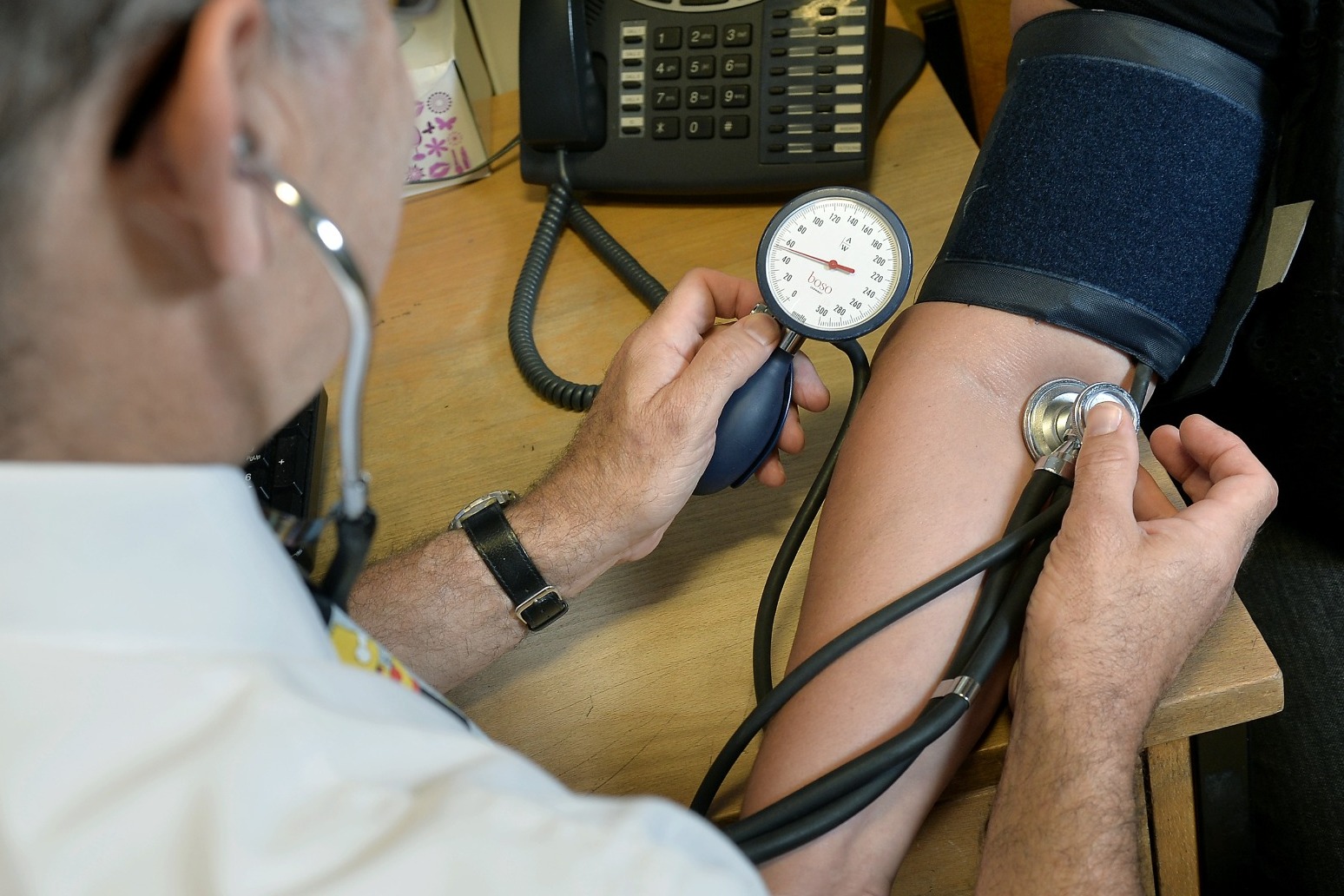
A ballot of family doctors in England by the British Medical Association closes today
GPs have threatened to bring the NHS to a “standstill” with unprecedented industrial action.
Family doctors across England are being balloted by the British Medical Association (BMA) on whether they are in favour of staging collective action amid a row over the new contract for GP services in England.
This collective action could potentially mean GPs limit the number of patients they will see each day to 25, they may choose to stop performing work they are not formally contracted to do, and they could potentially ignore “rationing” restrictions by “prescribing whatever is in the patient’s best interest”.
In an interview with the PA news agency, one of the nation’s top GPs said the action could bring the NHS to a “standstill very quickly” – though medics have said they do not want to make patients “piggy in the middle” and are directing the action at NHS England and the Department of Health and Social Care.
The ballot of GPs is to close on Monday and, if medics vote in favour of collective action, it will start on August 1 and could last for “months”.
GPs have not staged action since 1964 when family doctors collectively handed in undated resignations to the Wilson government.
This led to reform including the Family Doctor Charter of 1965.
Dr Katie Bramall-Stainer, chairwoman of the BMA’s England General Practitioners Committee, said she aspires to talk to the current Government about a Family Doctor Charter 2025 – 60 years on from the original.
“We have moved on so much since then, but I think we need to again agree a set of principles if you want the NHS to be free at the point of use, universal to all, funded through central taxation,” she told PA.
“In a free at the point of use service, you have got to have a really effective, emboldened, resourced gatekeeper. And your gatekeeper is the GP.
“The GP model is why the NHS has lasted as long as it has done and when you try and break the GP model, you break the gatekeeper, and when you break the gatekeeper, you break the NHS. I think that is what we’re seeing on a macro level.”
On the industrial action, she said: “We’re not going on strike. This is collective, premeditated, disruptive action.
“It is industrial action, but the target isn’t patients. The target is NHS England Department of Health.”
Dr Bramall-Stainer said the action has been designed to be “easy, sustainable and effective”.
She added: “If it’s done effectively, it’s done collectively and it’s done well, it will bring the NHS to a standstill very quickly – but not for patients, (for) all the NHS admin, the policymakers who have put in place these decisions that aren’t helping patients.”
Dr Bramall-Stainer said there appears to be a “desire to break general practice”, adding there have been “three successive contracts impositions over the past three years”.
The BMA has said the new GP service contract, which will see services given a 1.9% funding increase for 2024/25, means many surgeries will struggle to stay financially viable.
GPs launched a formal dispute over the issue in April after a referendum carried out by the union found 99% of 19,000 GPs rejected the contract.
If the ballot is successful then GPs have a suite of measures which they can deploy as part of the action.
One element could be that family doctors will “prescribe whatever is in the patient’s best interest”, regardless of “rationing” restrictions put in place by local NHS bodies.
“We’re just going to ignore the ‘computer says no’ mentality,” she said.
“All the time systems are asking GPs to be the rationer, to be the gatekeeper to finance, not just the gatekeeper to activity.
“Actually we are going to prescribe whatever is in the patient’s best interest.”
GPs may also opt-out of local data-sharing agreements which are not needed for direct patient care.
But Dr Bramall-Stainer insisted “patients won’t come to harm from this”.
She added: “We don’t want to put patients as piggy in the middle – we live in our communities with our patients, there are no barriers between us.
“We get a lot of the flak from the failings of the NHS and we agree with our patients and it’s quite exhausting. The last thing we want to do is pitch patients against us.
“I don’t think patients will really notice very much difference at all. And that’s the plan.”
She said the union has some “cost-neutral solutions and suggestions that can make a big difference” to the working lives of GPs around England.
One such solution could be giving GP surgeries the freedom to use a staff funding pot to employ more GPs and additional practice nurses. The Additional Roles Reimbursement Scheme is a £1.4 billion fund designed to boost GP practice staff including physician associates and pharmacists, but not GPs or practice nurses.
Others could include tailoring incentive schemes including those aimed at boosting childhood vaccination rates and reinstating the amount practices are paid per vaccination for delivering Covid-19 jabs.
Dr Bramall-Stainer met with Health Secretary Wes Streeting on July 18 and union leaders hope such talks will continue.
Earlier this month she set out a number of asks of the Government, including the new Family Doctor Charter; a “minimum investment standard” for general practice; an ask to build “real-terms re-investment into general practice; and a call for “GP-to-patient list size ratios”.
Mr Streeting’s first official visit in his new role was to a London GP surgery on July 8, where he pledged to “bring back the family doctor” and “fix the front door to the NHS”.
A Department of Health and Social Care spokesperson said: “The Health and Social Care Secretary has met with the chair of the BMA’s GP committee to discuss their priorities ahead of their ballot closing on July 29.
“However, it is important we plan for all contingencies, in every eventuality, to keep patients safe”.
Industrial action by doctors could have a “catastrophic” impact on A&E units, mental healthcare and the 111 telephone advice service, according to NHS Confederation chief executive Matthew Taylor.
He told the Guardian: “If all GPs implemented the patient cap, that could have a catastrophic effect on the entire healthcare system.
“General practice is now supporting more patients than before the Covid pandemic, so any reduction in their activity will put more pressure on other services, including A&E.”
Published: by Radio NewsHub









